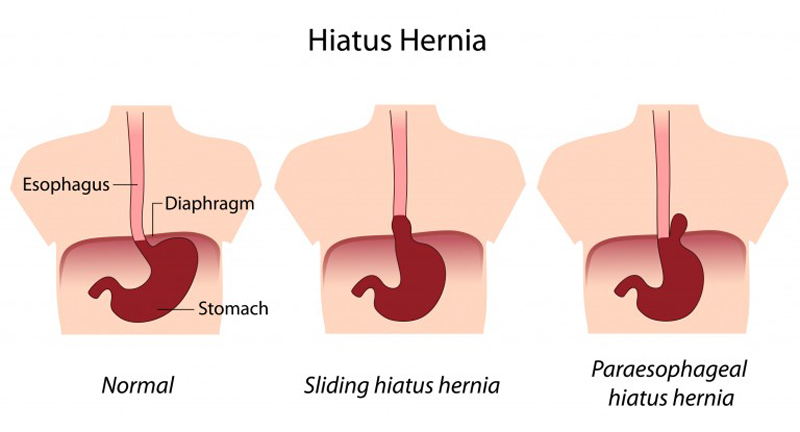Acid Reflux - GERD Symptoms and Healing Solutions
Sept. 6, 2023 #Heartburn/GERD
Understanding Gastro-esophageal Reflux Disease (GERD)
Gastro-oesophageal Reflux Disease (GERD) is a condition In which the acids in the stomach flow back to the esophagus. This happens due to the Lower Esophageal Shincter(LES), a flap or valve on the opening of the stomach, that weakens or relaxes abnormally.
The symptoms include a burning sensation in the chest, chest pain, difficulty in swallowing and regurgitation. These symptoms are usually felt after having a meal and while laying down. These symptoms may cause complications if left untreated and may cause esophagitis (inflammation of the esophagus), esophageal stricture (narrowing of the esophagus) and Barrett’s esophagus (changes in the esophageal cells that may increase the risk of cancer).Several factors contribute to the development of GERD such as smoking, obesity, hiatal hernia and pregnancy.Treatment Options for Gastro-esophageal Reflux Disease (GERD)
Managing GERD involves a combination of lifestyle changes, medications, and, in some cases, surgical intervention. These treatment options aim to alleviate symptoms, reduce acid reflux, and improve quality of life for individuals with GERD.
In order to manage symptoms from GERD, a combination of healthy lifestyle choices, change to a healthier diet, medications and in rare cases, surgery may be opted. These options may help in alleviating symptoms and reduce the incidence of acid reflux.
Healthy Lifestyle Choices
- Weight Loss: Losing weight can reduce the frequency and severity of GERD symptoms. Regular exercise and a balanced diet are essential for achieving a healthy weight.
- Avoiding Trigger Foods: Certain foods and beverages can trigger acid reflux. Spicy foods, citrus fruits, fried and fatty foods, fizzy drinks, chocolate, caffeine, and alcohol should be avoided.
- Eating Smaller Meals: Consuming smaller meals throughout the day prevents excessive stomach pressure and reduces the likelihood of acid reflux.
- Elevating the Head of the Bed: Raising the head of the bed by a few inches helps prevent acid from flowing back into the esophagus while sleeping. Extra pillows or a wedge-shaped pillow can be used.
- Avoiding lying down after eating: Waiting at least three hours after a meal before lying down or going to bed helps prevent acid reflux. This allows the stomach to partially empty before lying flat.
- Quitting Smoking: Smoking weakens the lower oesophageal sphincter, contributing to GERD symptoms. Quitting smoking improves overall health and alleviates GERD symptoms.
Medications
- Antacids: These are the first line of defence against GERD symptoms. They are over the counter medicines and syrups that can give temporary relief. They work by neutralizing stomach acids and. These have very short term effectiveness and cannot replace prescription medications.
- Proton Pump Inhibitors (PPIs): PPIs are the next most important form of treatment for GERD. These are the most widely used prescription medicines to reduce stomach acid production and help heal the oesophagus.
- Prokinetics: These strengthen the lower oesophageal sphincter and improve digestive tract movement, reducing acid reflux. Prokinetics are typically prescribed by a healthcare professional.
Generally if people practice a healthy lifestyle and incorporate regular exercise combined with a healthy diet can avoid symptoms of GERD. It is important to eat frequent small meals instead of one large meal. The meals should be eaten at least 2-3 hours before going to bed and avoiding smoking and carbonated drinks. The symptoms can also be managed with over the counter, and prescription medications such as PPIs may be used frequently used. It is very rare that anyone should elect for surgery to alleviate the symptoms of this disease.






COMMENTS